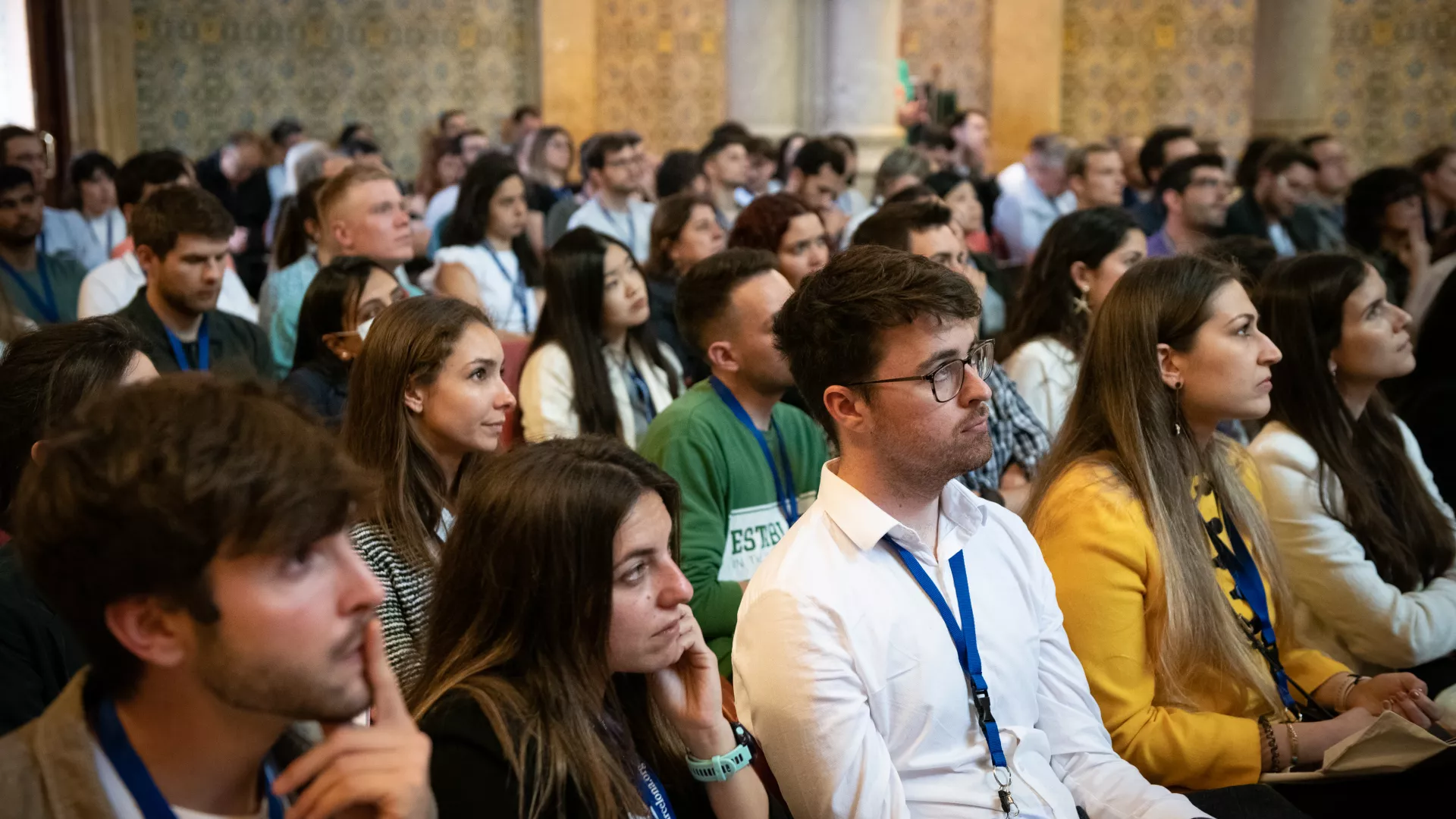Antonio Zorzano (IRB Barcelona) and Luca Scorrano (University of Geneva, CH) Barcelona, Spain. 21-23 March, 2011
Presentation
The multifaceted contribution of mitochondria to cell biology starts with their key role in energy conversion and includes cell death, maintenance of calcium homeostasis, control of intermediate metabolism and of cell growth. The life and death of mitochondria, including growth, fission, and autophagic degradation, is controlled by the “host” cell. In the recent years, we are starting to unravel the molecular mechanisms that control mitochondrial death. In particular, recent findings indicate that proteins that participate in mitochondrial dynamics also regulate the destruction of those organelles through autophagy. This topic offers the possibility for the development of novel therapeutic strategies in human disease.
This conference gathers together some of the major contributors to the development of two relevant fields, i.e., autophagy and mitochondrial dynamics. Current ideas and future avenues of research in a multidisciplinary, think-tank atmosphere will be analyzed.
Organized in colaboration with:

Links
There is no registration fee for this conference, but the number of participants is limited.
Participants are invited to submit abstracts, a number of which will be selected for short talk and poster presentations. Abstracts should include a title, authors, affiliations, summary (max 250 words) and references.
Venue
The BARCELONA BIOMED CONFERENCE on Mithocondrial Autophagy will be hosted by the Institut d'Estudis Catalans (IEC) in the heart of downtown Barcelona. Talks will take place in the Sala Prat de Riba.
Institut d'Estudis Catalans
C. del Carme, 47
08001 Barcelona
Tel +34 932 701 620
Fax +34 932 701 180
informacio iec.cat
iec.cat
www.iec.cat

How to reach the IEC:
From Barcelona El Prat airport:
Via Taxi
A taxi from the airport to the IEC should take about 25 minutes and cost around 25-30 euros depending on traffic and luggage.
Via Train
The RENFE train leaves the airport every half an hour and will take you to Passeig de Gracia station, in about 25 mins and costs 2.80 Euros for a single ticket. Change here for the Green Line metro to Liceu. The IEC is a 10-minute walk from the metro station (see map).
Via Bus
A transfer service called "Aerobus" will also take you from the airport to Plaça Catalunya and costs 4.25 Euros. The journey time is around 30 minutes. The IEC is a 10-minute walk from the Plaça Catalunya (see map).
From Girona airport:
The "Barcelona bus" runs a transfer service between Girona Airport and Barcelona's city centre, scheduled to coincide with Ryan Air flights. The bus stops right outside the airport and will take you to Estacio d'Autobusos Barcelona Nord (Barcelona's main bus terminal), with a journey time of about 1 hr 10 min. The nearest Metro stop to the bus station is Arc De Triomf, which is a 5-10 minute walk from the bus station (exit the bus station Sortida Nàpols). Take the Red Line (L1) to Plaça Catalunya. The IEC is a 10-minute walk from the Plaça Catalunya (see map).
From Sants train station:
Transfer to the metro Red Line (L1), and get off at laça Catalunya. The IEC is a 10-minute walk from the Plaça Catalunya (see map).
If you are arriving locally:
 Metro
Metro
Plaça Catalunya (lines 1 and 3)
Liceu (line 3) FGC
FGC
Plaça Catalunya (train from Sarrià) Renfe
Renfe
Plaça Catalunya Buses
Buses
41, 55, 141 (Plaça Catalunya stop)
14, 18, 59, 91 (Rambla stop)
Barcelona Metropolitan Transport webiste (with metro and bus maps)
Accomodation
Speakers will be lodged at the Hotel Catalonia Ramblas
c/ Pelayo, 28
08001 Barcelona
Telephone: +34 93 316 84 00
Fax: +34 93 316 84 01
e-mail: ramblas.comercial hoteles-catalonia.es
hoteles-catalonia.es
www.hoteles-catalonia.com
Other hotels
A list of additional hotels within walking distance of the IEC can be found at: http://www.barcelona-tourist-guide.com/en/hotels/hotelmaps/ramblas-hotel-barcelona.html (The IEC is located near the blue point 08/5 star). Rates will vary depending on choice of hotel and season. Please check with the hotel of your choice directly for the best offer.
Residences
Another possibility is the Residencia dels Investigadors (Investigators Residence Hall), which has an agreement with the CSIC (Spanish National Research Council) and the Catalan Government. It is located just behind the IEC, and is available for short-term stays. Rates (valid from 01/10/08- 31/08/09) range between 51-68 euros for a single room, to 71-94 euros for a double room.
Residencia dels Investigadors
C/ Hospital, 64
08001 Barcelona
Telephone: +34 93 443 86 10
Fax: +34 93 442 82 02
e-mail: investigadors resa.es
resa.es
www.resa.es/eng/residencias/investigadors
Participants registered for events in the Barcelona BioMed series should contact the hotels and residences directly to arrange bookings and payment.
Speakers
Chairs:
- Antonio Zorzano, Institute for Research in Biomedicine (Barcelona, Spain)
- Luca Scorrano, University of Geneva (Geneva, Switzerland)
Speakers:
- Hagai Abeliovich, Institute of Neurological Disorders and Stroke (Bethesda, MD, USA)
- Patricia Boya, Centro de Investigaciones Biológicas, CIB-CSIC (Madrid, Spain)
- Francesco Cecconi, University of Rome Tor Vergata (Rome, Italy)
- Ana-Maria Cuervo, Albert Einstein College of Medicine (Bronx, NY, USA)
- Ivan Dikic, Goethe University Medical School (Frankfurt, Germany)
- Lesley Kane, National Institute of Neurological Disorders and Stroke (Bethesda, MD, USA)
- Thomas Langer, University of Cologne (Cologne, Germany)
- Bingwei Lu, Stanford University School of Medicine (Stanford, CA, USA)
- Heidi McBride, University of Ottawa Heart Institute (Ottawa, Canada)
- Katsuyoshi Mihara, Kyushu University (Fukuoka, Japan)
- Paul Ney, St. Jude Children’s Research Hospital (Memphis, TN, USA)
- Karin Nowikowsky, University of Vienna (Vienna, Austria)
- Jodi Nunnari, University of California (Davis, CA, USA)
- Koji Okamoto, National Institute for Basic Biology (Okazaki, Japan)
- Angelika Rambold, National Institute of Child Health and Human Development (Bethesda, MD, USA)
- Manuel Rojo, Institut de Biochimie et Génétique Cellulaires (Bordeaux, France)
- Marco Sandri, Dulbecco-Telethon Institute (Padua, Italy)
- Orian Shirihai, Boston University (Boston, MA, USA)
- Alex van der Bliek, University of California (Los Angeles, CA, USA)
- Alexander J. Whitworth, University of Sheffield (Sheffield, UK)

